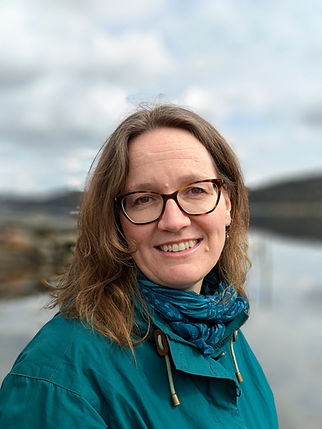The conference program will be posted in March 2026, after completion of the submission reviews.
In the meantime, enjoy Dr. Reader's 2024 keynote, which features the importance of smiling as the end of the world is not imminent! Hopefully!
Keynote Speakers

Dr. Graham Reader
BA, BTech (Hons), PhD, psc, FEC, PEng, CEng, CMarE, Eur Ing, FIMarEst
2030 – the passing of another courageous deadline?
After more than 50 years of trying to fully harmonize human well-being with that of the Earth, particularly with regard to defeating anthropogenic climate change, eliminating poverty and hunger, and embracing a radical transition in energy sourcing on a global scale, what has been achieved? Will the efforts of the latest attempts embodied in the 2015 triumvirate of UN endorsed resolutions, the ‘Paris Agreement,’ ‘Transforming Our World: Agenda 2030,’ and the ‘Sendai Framework for Disaster Risk Reduction,’ prove to be successful, and if so, when? If the associated endeavours do not result in the various triumvirate goals being fulfilled in their entirety, what next? Are the goals overly ambitious or the targets appropriate but the quantifiable indicators imperfect? The lack of political will and the shortfall in meeting financial investment commitments are often citied as the reasons for the continuing performance disappointments but how can nations with huge debts afford to invest more? With the somewhat short lifetimes of democratic governments can consistently harmonizing policies be guaranteed to ensure climate change mitigation and sustainable development? This presentation will address some of these contentious issues.

Dr. Ida-Maja Hassellöv
Dr. Hassellöv has a background in marine chemistry which she applies in studies of pressures and impacts of human activities, in particular shipping, on the marine environment. Ida-Maja is the coordinating author of the shipping chapter in the third UN World Ocean Assessment and is frequently providing advise to national and international policy development related to shipping.
Maritime transport is the backbone of global trade and responsible for close to 3% of the worldwide annual anthropogenic carbon dioxide emissions. In response to these figures, the International Maritime Organization has set out an ambitious GHG Strategy aiming at net-zero GHG emissions from shipping by 2050. This strong focus on decarbonization is important, yet it overshadows the need to mitigate other types of shipping related environmental pressures and impacts. In coastal areas, where the largest shipping densities are found, the resulting contaminant load can be substantial e.g. copper from antifouling paints close to 40% and organic contaminants from exhaust gas treatment systems (scrubbers) 8-9% per compound. In fact, a ship can be compared to a floating industry, giving rise to an array of biological, chemical and energy pollution, but the regulatory frameworks usually address one onboard system at the time, one ship at the time in the strive to prevent pollution. From a marine environment perspective, there is a need to consider the cumulative pressure from all onboard systems, from all ships in the geographic area of interest. This presentation will address environmental challenges of shipping and provide recent examples when science have led to improvement of the global policy development to protect our ocean.